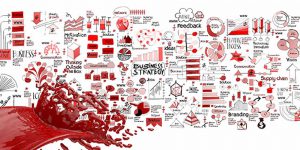Team Development
Build high performing teams
All programs tailored to your context
UGM Team Development Programs
Support you might want
Development. Advisory. Facilitation
Clients have different needs. UGM can support you in a variety of ways.
Contact us for a free team development consult

high performing teams
Why are some teams ‘more intelligent’ than others?
Research shows that some teams are ‘more intelligent’ than others. While one may assume that the aggregate of individual intelligence of team members is the key factor, it accounts for less than half of group intelligence.
Teams that score as more intelligent than others seem to share a number of common factors. First, it seems as if they understand the impact of communication. It’s not just the volume (which is ‘just right’) of exchanges, but also their quality that is superior than many more ordinary teams.
Vitally, intelligent teams also included team members much more of the time. Whereas low performing teams often had one or two individuals dominating the exchanges, intelligent teams had a much more even distribution of exchanges among all team members. Since communication is a vital channel for individuals brainpower, it stands to reason that accessing more of the team’s brainpower lifts team performance.
Unfortunately, intentional team development is not a common practice in organisations, and even less so when project teams or working groups come together. However, with even quite basic team development, you can turn average performing teams into high performing, intelligent teams.
When complex challenges must also be tackled in the presence of significant cultural differences, leaders need cultural competence if they are to avoid failure. Poor levels of cultural competence trigger a downward spiral, eroding trust and jeopardising results.”
Source: UGM and various recent studies
what are clients looking for?
Criteria Our Clients Value
Here’s what clients value in UGM team building events
it works!
Don’t Just Take Our Word For It
Build a High Performing Team
This program is suited to:
Program Benefits
Interactive mini-module modules
Analyse individual work preferences
Analyse individual work preferences and reflect on how this contributes to building and sustaining a high performing team.
Generate a shared model for working together
Generate a shared understanding of how the team might best work together and use a shared model and language to plan for success and diagnose any missteps along the way.
Promote change agility through process
Learn how to plan with the end in mind and use frequent evaluation of progress to get better decision-making up front and high quality evaluation and learning throughout.
Develop ‘collective intelligence’
Understand key communication skills and associated behaviours that build collective intelligence.
Help individuals become high performers
Reflect on the competencies of high performing individuals and how these apply in the context of your team.
Teams in Complex Contexts
This module is for:
Module Benefits
Interactive mini-module modules
Recognise there are different problem types
Understand, through powerful practical examples, that problems can be usefully classified into one of four broad categories. Based on these insights, explore and resolve problems based on their context context.
Understand why complexity demands special attention
Understand why volatile, uncertain, complex and ambiguous (VUCA) contexts often result in traditional management approaches being insufficient, and sometimes not even applicable.
Practise using tools suited to complex contexts
Use powerful suite of tools and frameworks that are well suited to solving problems and managing in complex contexts.
Learn skills for managing teams in complex contents
Learn essential skills that will improve team functioning in complex contexts, including ways to encourage your team to disagree without being disagreeable and how to structure ‘teams’ in ways that fit the context.





